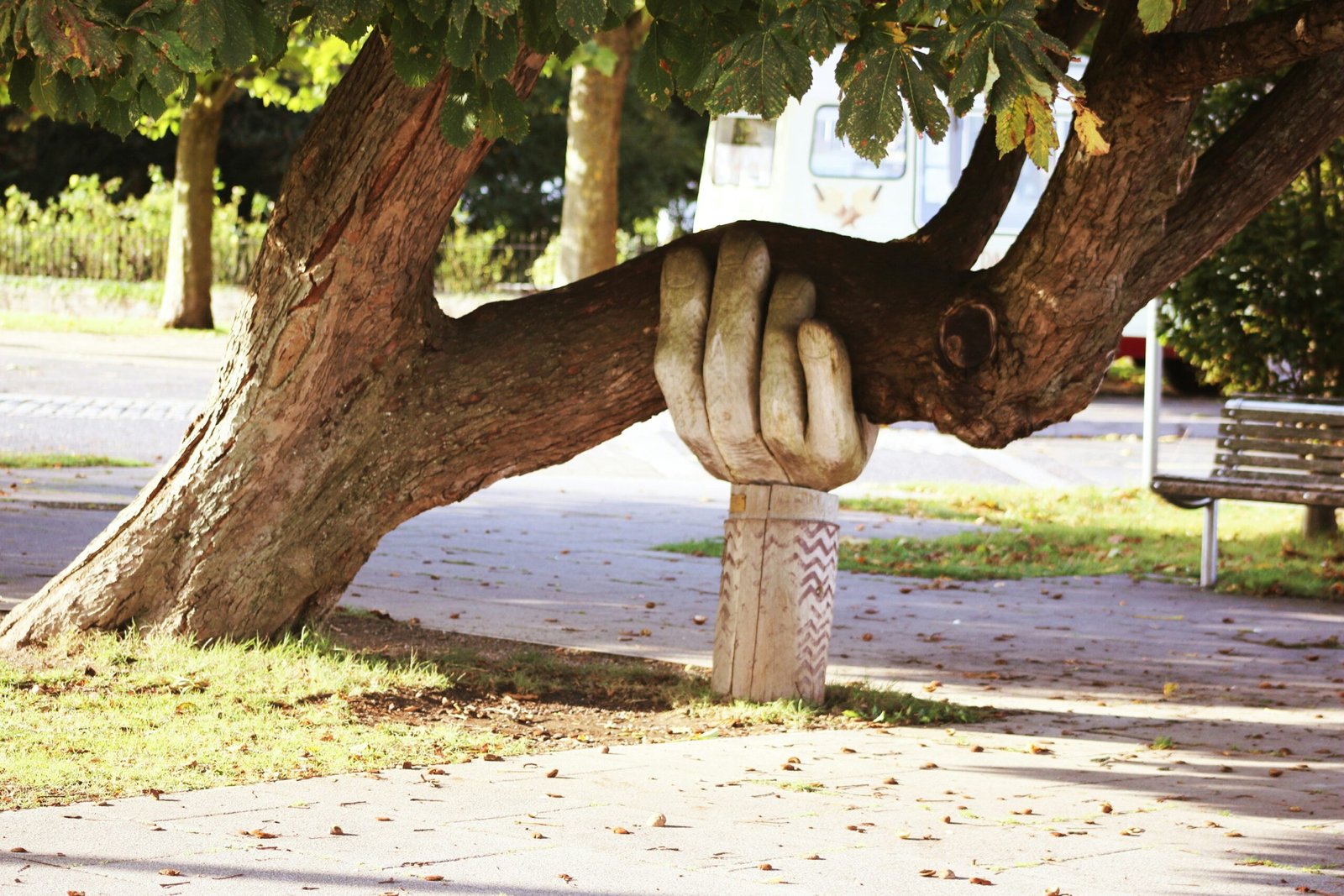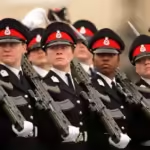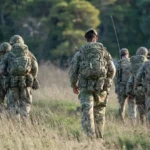Domestic violence is a pressing issue within various communities, yet it often manifests in unique ways among military veterans. These individuals face a distinct set of challenges that can exacerbate the risk of experiencing or perpetrating violence in intimate relationships. Service-related trauma and mental health issues stand out as significant contributing factors. Veterans may return home burdened by the psychological scars of combat exposure, including post-traumatic stress disorder (PTSD), depression, and anxiety, which can lead to difficulties in managing emotional and interpersonal relationships.
The transition from military to civilian life can be particularly tumultuous. Veterans often encounter an array of challenges, including unemployment, loss of identity, and difficulty accessing support services. These factors can amplify feelings of isolation and helplessness, which may lead some individuals to cope through unhealthy mechanisms, including aggression and substance abuse. Such circumstances can escalate tensions within households, increasing the likelihood of domestic violence occurrences.
Moreover, the dynamics of domestic violence in veteran communities may differ from those in the general population. Stigma surrounding mental health issues can deter veterans from seeking help, perpetuating a cycle of emotional turmoil and relationship distress. Many veterans might feel compelled to suppress their experiences and emotions, creating an environment where violence can manifest either through aggression or victimization. Understanding these nuances is crucial for developing effective interventions and support systems.
It is essential for both the public and healthcare professionals to recognize the unique challenges faced by military veterans regarding domestic violence. By fostering an empathetic understanding of their experiences and promoting accessible mental health resources, communities can create safer environments that help mitigate the risk of domestic violence. Such awareness is critical in both preventing incidents and supporting recovery for those affected.
Recognising the Signs of Domestic Violence
Domestic violence manifests in various forms, including emotional, psychological, and physical abuse. For military veterans, who often have unique experiences and perspectives, identifying these signs may be complex. Understanding the subtleties of domestic violence is crucial in ensuring that veterans, and those they care about, can seek help and find safety.
Emotional abuse often involves tactics designed to manipulate or control one’s partner. This may include constant criticism, humiliation, denial of emotional support, and even isolation from friends or family. Veterans may recognize these patterns based on hierarchical relationships often experienced in the military; however, the power dynamics in personal relationships should be viewed through a different lens. It is important for veterans to acknowledge that such behaviors are not only harmful but are clear indications of domestic violence.
Psychological abuse can further complicate relationships. It may involve threats, gaslighting, or instilling fear to gain control over a partner’s thoughts and feelings. Veterans, accustomed to high-stress environments, may find it difficult to discern between assertive expressions of concern and manipulative behavior. Developing awareness of psychological manipulation is vital, as this form of abuse can significantly impact a person’s mental health and well-being.
Physical abuse, which is often the most recognisable form of domestic violence, includes hitting, slapping, or any form of violence that results in bodily harm. Veterans may have encountered combat and intense physical situations, which can make it challenging to interpret aggression in personal relationships. Understanding that harm, whether emotional or physical, constitutes abuse is essential for recognizing when one might be in a harmful situation.
By educating themselves on these signs of domestic violence, veterans can become more attuned to the complex dynamics within their relationships, creating space for conversations about safety and support.
The Importance of Seeking Help
Domestic violence is a pervasive issue that affects individuals from all walks of life, including military veterans. The importance of seeking help in such circumstances cannot be overstated. For many veterans, the transition from active duty to civilian life brings unique challenges, and facing domestic violence can exacerbate feelings of isolation and helplessness. Recognizing the courage it takes to reach out for assistance is vital in breaking this cycle of violence.
One of the most significant obstacles to seeking help is the pervasive stigma that often surrounds domestic violence. Many victims may fear judgment or believe that they are exhibiting weakness by admitting their struggles. However, overcoming this stigma is crucial, as seeking help is, in fact, a sign of strength and resilience. It is essential for individuals to understand that reaching out to domestic violence helplines or support services is a proactive step towards reclaiming their safety and well-being.
By seeking help, military veterans not only take control of their personal circumstances but also set a positive example for their families and communities. As individuals become aware of the resources available to them, it can foster a culture of support and encourage others facing similar predicaments to come forward. The act of seeking help can ripple through the community, promoting awareness and reducing the stigma associated with domestic violence, ultimately transforming the lives of those affected.
Moreover, addressing domestic violence early through the appropriate channels can significantly improve family dynamics, encouraging healthier relationships and emotional well-being. These positive impacts can help in building a supportive community where veterans are recognized and valued, assisting them in their recovery process. In conclusion, seeking help is an essential first step in the journey towards safety, healing, and a brighter future for veterans and their families.
An Overview of Domestic Violence Helplines in the UK
In the UK, domestic violence helplines offer crucial support to individuals experiencing abuse, providing a lifeline for those in distress. Among these resources, the National Domestic Violence Helpline is a prominent service, available to individuals across the country. Operated by the Refuge charity in partnership with Women’s Aid, it provides confidential support 24 hours a day, ensuring that those in need can reach out at any time. The helpline not only offers immediate assistance but also connects individuals with safe refuge options, ongoing support, and legal advice.
In addition to the national helpline, a network of local services exists throughout the UK, catering to the needs of specific communities and demographics. These local services often offer tailored support, assisting victims in accessing shelter, counseling, and guidance within their immediate vicinity. It is beneficial for individuals, including military veterans, to reach out to these local organisations, as they can provide more personalised care, taking into account regional resources and specific circumstances faced by veterans who may not disclose their history of military service during their experiences with domestic violence.
Several organisations specifically focus on supporting military veterans dealing with domestic violence. For instance, Combat Stress and the Veterans’ Gateway offer dedicated helplines and services for veterans who may be experiencing mental health challenges tied to their military experience, which can sometimes intersect with domestic violence issues. These organisations are equipped to provide not only emotional and psychological support but also practical assistance, ensuring that veterans can find a safe haven and rebuild their lives.
Overall, the variety of domestic violence helplines and related services in the UK serves as a foundation for individuals seeking help. Recognising the breadth of available resources is essential for effective support and recovery for all victims, particularly military veterans who may face unique challenges.
24/7 Confidential Support: Key Helplines for Veterans
In the UK, military veterans facing domestic violence have access to a variety of helplines that provide 24/7 confidential support. These services are designed specifically to cater to the unique challenges faced by veterans, ensuring that they receive the personalized assistance they need. One of the primary helplines available is the Veterans’ Gateway, which serves as a vital first point of contact for those seeking help. They offer a comprehensive range of support, including mental health services, housing assistance, and guidance on legal issues, making it a valuable resource for veterans in crisis.
Another crucial resource is the National Domestic Violence Helpline, which operates through a partnership with the charity Refuge. This helpline is accessible 24/7 and provides support to those experiencing domestic abuse, regardless of their background. For veterans, this can include tailored advice on safety planning and accessing refuge accommodations. These trained professionals are well-equipped to understand the complexities surrounding military backgrounds and domestic violence, allowing for an empathetic approach to care.
The Samaritans helpline is also an essential service, offering a confidential space for veterans to discuss their feelings and experiences without judgement. While not exclusively dedicated to domestic violence, the Samaritans provide invaluable emotional support that can help veterans navigate through their crises. Veterans can reach out at any time to speak with trained volunteers who focus on listening and providing comfort to those in distress.
In addition, the Veterans and Reserves Mental Health Programme provides crucial support specifically for veterans struggling with mental health issues stemming from their military service. This programme emphasizes the importance of mental well-being in overcoming the impacts of domestic violence. Through these helplines and services, veterans have multiple avenues to seek assistance, ensuring that they can find the help they need in times of crisis.
What to Expect When You Call a Helpline
When a military veteran reaches out to a domestic violence helpline, it is understandable to have concerns about the process and the nature of the conversation. The helpline experience is designed to be supportive and reassuring. Initially, you will be greeted by a trained and empathetic professional who understands the unique challenges faced by veterans and aims to create a safe space for open discussion.
During the call, they may ask a series of probing questions to gauge your situation accurately. These questions can include inquiries about the nature of the violence, your immediate safety, and any ongoing concerns you may have. This information helps the helpline staff to provide tailored assistance and recommendations for support services. While these questions can feel intrusive, they are essential in determining the best course of action for your needs.
Support offered through helplines is multi-faceted. It may include emotional support, guidance on creating a safety plan, or information regarding legal rights and options. Furthermore, helplines can connect you with local resources, such as shelters, counseling services, and support groups specifically geared toward veterans. These comprehensive resources aim to empower you to take necessary steps toward healing and safety.
Confidentiality is a cornerstone of helpline interactions. Callers can expect that personal disclosures will remain private, adhering to strict confidentiality guidelines. This assurance allows veterans to engage without fearing repercussions. The trained professionals at these helplines are dedicated to building trust and offering a non-judgmental listening ear. Recognizing that reaching out for help can be daunting, helplines strive to ease apprehensions and provide steadfast support.
Emergency Services and Shelters: Finding a Safe Haven
For UK military veterans confronted with domestic violence, the first step towards safety often involves reaching out to emergency services and shelters specifically designed to assist those in need. Recognizing the critical nature of such situations, various organizations have established helplines and shelters catering to veterans, ensuring that they can find refuge and support swiftly.
In an emergency, the immediate response from local authorities can provide crucial assistance. Veterans experiencing domestic abuse should not hesitate to contact emergency services by dialing 999. Trained operators can dispatch police or offer guidance tailored to the veteran’s circumstances. Furthermore, the military community can access additional support through organizations such as the Veterans’ Charity, which offers resources specifically targeted at former service members.
Among the available resources, shelters play a vital role in providing a safe haven. Many dedicated shelters offer a comprehensive range of services, including temporary accommodation, emotional support, and assistance with reconnecting to support networks. While policies may vary from one shelter to another, it is common for these facilities to have trained staff who understand the unique challenges veterans may face and are equipped to offer tailored support.
Accessing these shelters often involves a simple phone call to a helpline, where veterans can receive immediate guidance on available options. Various charities and non-profit organizations across the UK specifically focus on veterans, such as the Soldiers, Sailors and Airmen’s Families Association (SSAFA), which holds extensive knowledge of local resources and shelters suited to veterans’ needs.
It is imperative to prioritize immediate safety. If you or someone you know is in a dangerous situation, seeking help without delay can lead to a better future. Identifying and utilizing these emergency services and shelters can make a significant difference, providing veterans with the safe haven necessary to escape domestic violence and begin the healing process.
Support Beyond Helplines: Additional Resources for Veterans
While helplines are critical for immediate assistance, veterans in need of long-term recovery and mental health support can benefit from various additional resources. These resources are designed to accommodate the unique experiences of military personnel, addressing the complexities of trauma and emotional distress that may arise from domestic violence.
One significant avenue for support is professional counselling services dedicated to veterans. These services often employ therapists who specialize in military-related trauma, such as post-traumatic stress disorder (PTSD) and other anxiety disorders. Therapists trained in the specific challenges faced by veterans can provide a safe space for individuals to share their experiences while receiving tailored strategies aimed at promoting healing. Furthermore, the National Health Service (NHS) offers programs specifically for military veterans, ensuring accessibility to those in need.
Peer support groups also serve as a vital component of recovery for veterans. These groups allow individuals to connect with others who have shared similar experiences, fostering a sense of community and understanding. Participants can openly discuss their battles with domestic violence and its aftermath in a supportive environment that encourages camaraderie and shared recovery pathways.
In addition to these supports, therapy options like Eye Movement Desensitization and Reprocessing (EMDR) have gained recognition for effectively treating trauma. EMDR focuses on processing distressing memories through guided eye movements, assisting veterans in overcoming past traumas, which can be particularly beneficial for those recovering from situations involving domestic violence.
Moreover, organizations such as Combat Stress and Help for Heroes provide holistic programs that incorporate various treatment modalities, including yoga, mindfulness, and family support initiatives. These programs emphasize overall well-being and not just the alleviation of immediate distress, representing a comprehensive approach to mental health recovery.
Utilizing these diverse resources can significantly enhance the healing journey for veterans, providing them with the necessary tools to regain control over their lives and promote a healthy, fulfilling future.
Building a Support Network: Engaging Family and Friends
For military veterans dealing with the repercussions of domestic violence, establishing a robust support network is crucial. Engaging family members and friends can provide veterans with the emotional and practical assistance they need to navigate their unique challenges. However, it is essential to approach these relationships thoughtfully to ensure that the support offered is both effective and sensitive to the veteran’s experiences.
First and foremost, communication serves as the foundation for building a supportive environment. Veterans should feel encouraged to have open discussions with their family and friends about their experiences and feelings. This transparency can foster understanding among loved ones, enabling them to provide tailored assistance. Informing family members and friends about the dynamics of domestic violence can empower them to recognize signs and offer appropriate help. Consider conducting educational sessions or sharing relevant resources about domestic violence to enhance their awareness.
It is also important for veterans to identify which family members or friends are most likely to provide meaningful support. This involves assessing the willingness and ability of these individuals to listen and be present without judgment. Once supportive individuals are identified, veterans can engage them by sharing specific ways in which they can help—be it through attending appointments, offering a listening ear, or assisting with daily tasks.
Furthermore, encouraging open dialogue regarding mental health should be part of this process. Veterans and their supporters can benefit from discussing the impact of service-related trauma and domestic violence on mental well-being. Such conversations can reduce stigma and motivate family members and friends to learn about available coping strategies and resources.
By actively engaging with their support network, veterans can create a protective circle that minimizes feelings of isolation and reinforces their resilience. A comprehensive support system serves as a beacon of hope, guiding them toward recovery and empowerment in the aftermath of domestic violence.






